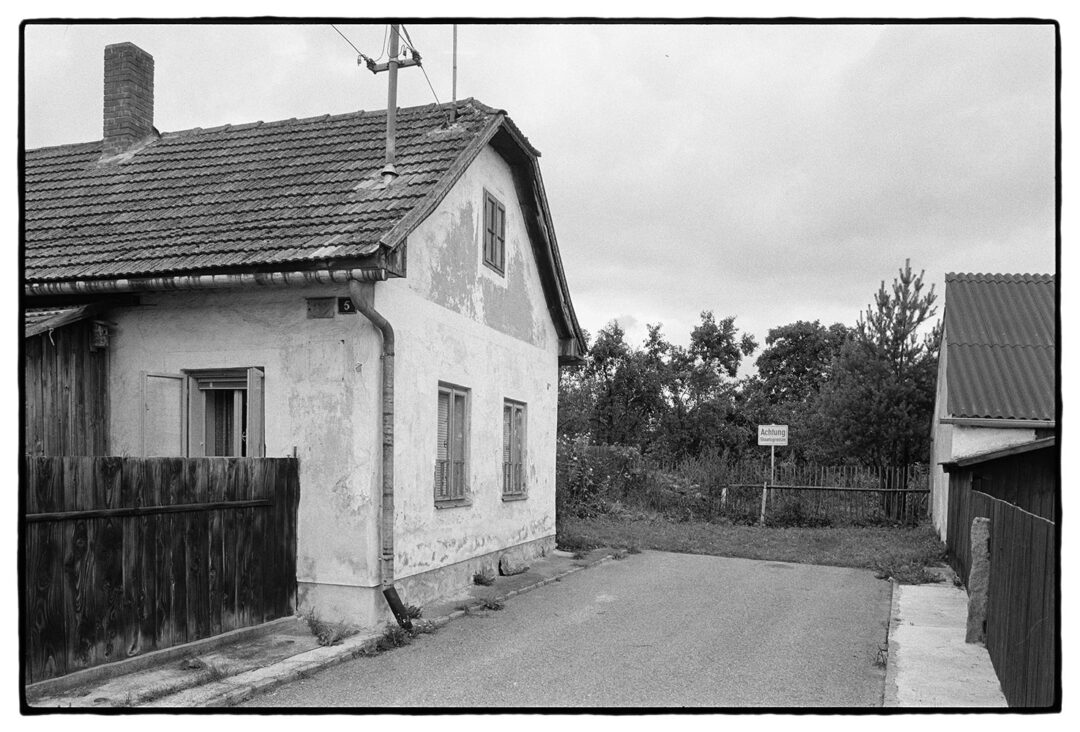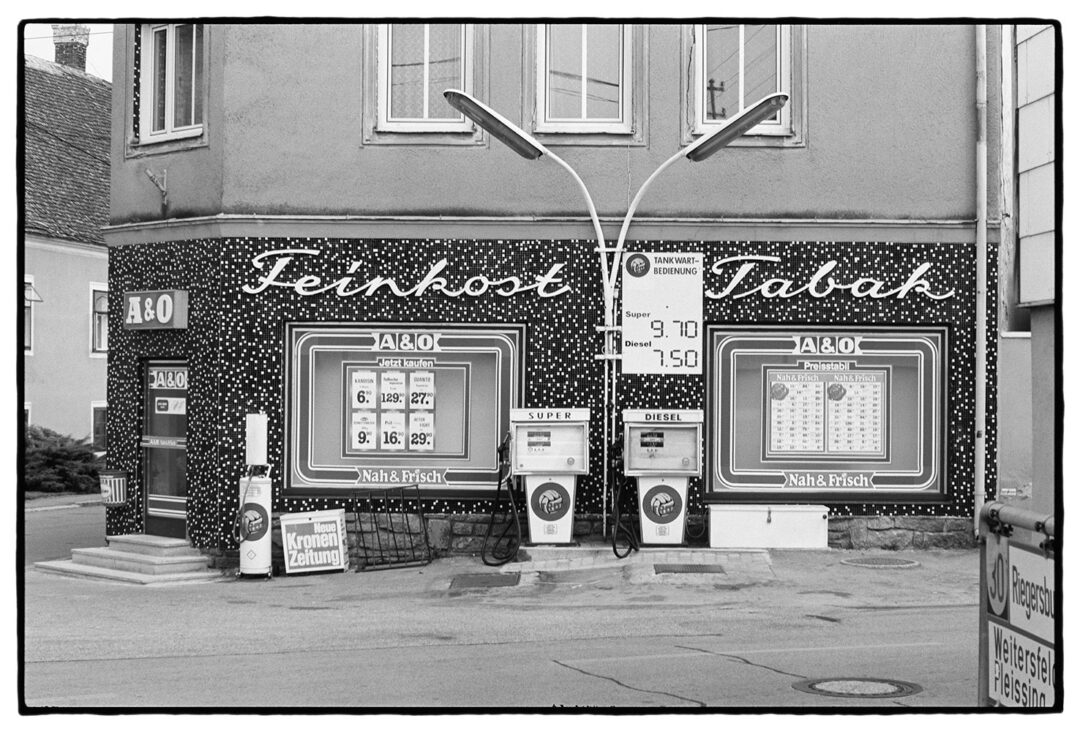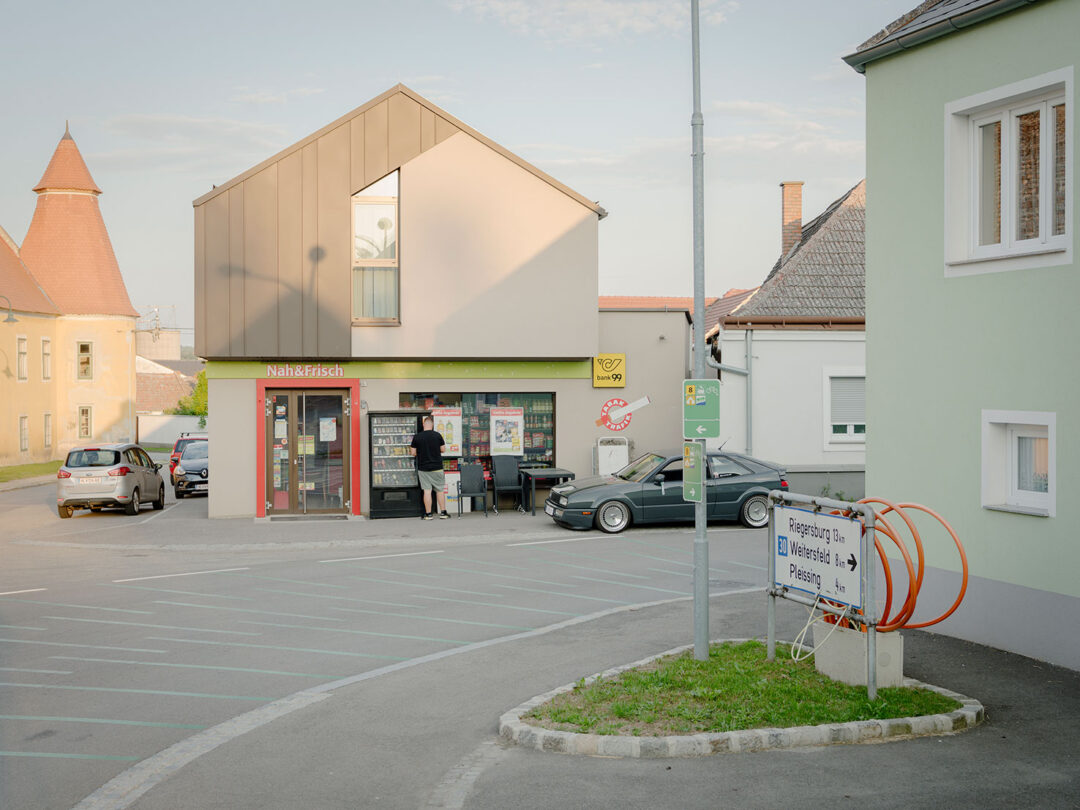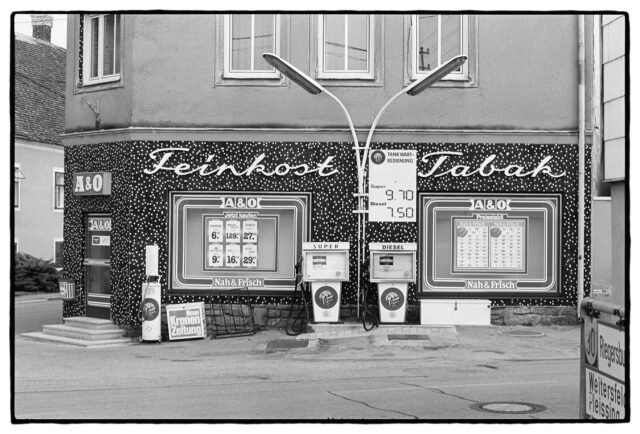



1986/89—2023/24
Exhibition
7-9/4-6 – Atelier Matthias Klos Blindengasse 7-9/4-6, 1080 Wien
10.—26.10.2025
Artists: Klos Matthias, Kraus Wolfgang
How does a landscape or a topography express transformation and the unpredictability of the future? In 1986 and 1989, cultural and social anthropologist Wolfgang Kraus explored the forested area along the Iron Curtain that still stood between Austria and what is now the Czech Republic. It was a region of border buildings and streets that ended with a fence or barrier, and the landscape was devoid of traffic. Kraus’s photographs are characterized by the presence of an impermeable border whose continued existence seemed to be guaranteed. However, just days after the final photographs were taken, the Iron Curtain became history. Four decades later, artist Matthias Klos revisited this region and took a fresh look at the same places in a former border region that has now been transformed into a transit area. This photographic dialogue tells of upheaval and radical change as well as the course of time that could not have been anticipated. This regional story tells of the dynamic openness and unpredictability of the future.
Produced as part of the project “Border Stories,” a cooperation between artists and everyday cultural studies.
Produced as part of the project “Border Stories,” a cooperation between artists and everyday cultural studies.
Fri1–7 PM
Sat1–7 PM
Sun1–7 PM
free entry Not barrier-free
Artists: Klos Matthias, Kraus Wolfgang
How does a landscape or a topography express transformation and the unpredictability of the future? In 1986 and 1989, cultural and social anthropologist Wolfgang Kraus explored the forested area along the Iron Curtain that still stood between Austria and what is now the Czech Republic. It was a region of border buildings and streets that ended with a fence or barrier, and the landscape was devoid of traffic. Kraus’s photographs are characterized by the presence of an impermeable border whose continued existence seemed to be guaranteed. However, just days after the final photographs were taken, the Iron Curtain became history. Four decades later, artist Matthias Klos revisited this region and took a fresh look at the same places in a former border region that has now been transformed into a transit area. This photographic dialogue tells of upheaval and radical change as well as the course of time that could not have been anticipated. This regional story tells of the dynamic openness and unpredictability of the future.
Produced as part of the project “Border Stories,” a cooperation between artists and everyday cultural studies.
Produced as part of the project “Border Stories,” a cooperation between artists and everyday cultural studies.
Events related to this exhibition:

| 13—19 Uhr
How does a landscape or a topography express transformation and the unpredictability of the future? In 1986 and 1989, cultural and social anthropologist Wolfgang Kraus explored the forested area along the Iron Curtain that still stood between Austria and what is now...
Opening hours:
Fri1–7 PM
Sat1–7 PM
Sun1–7 PM
Address:
Blindengasse 7-9/4-6
1080 Wien
Blindengasse 7-9/4-6
1080 Wien